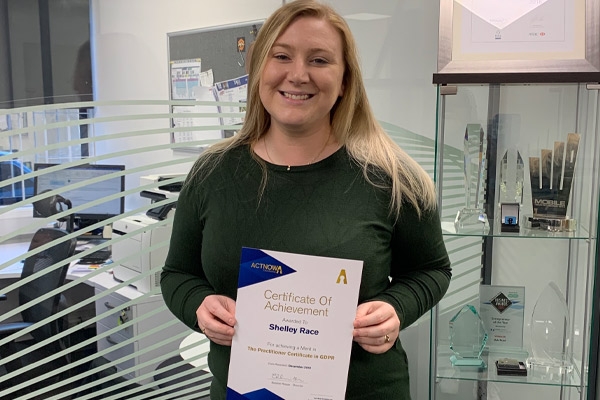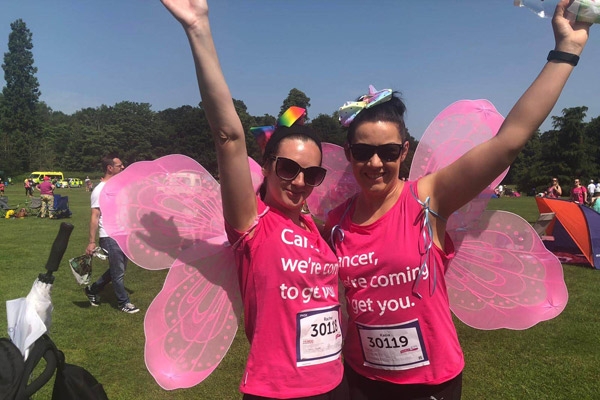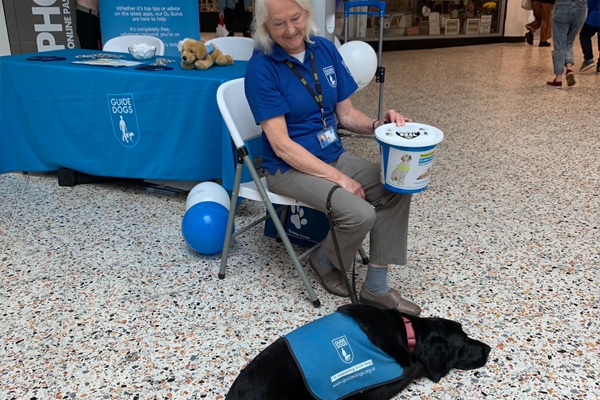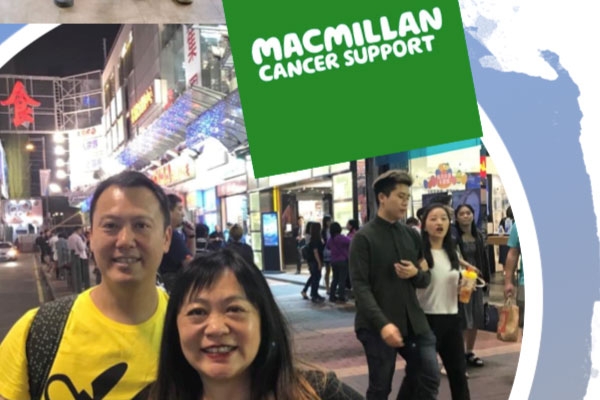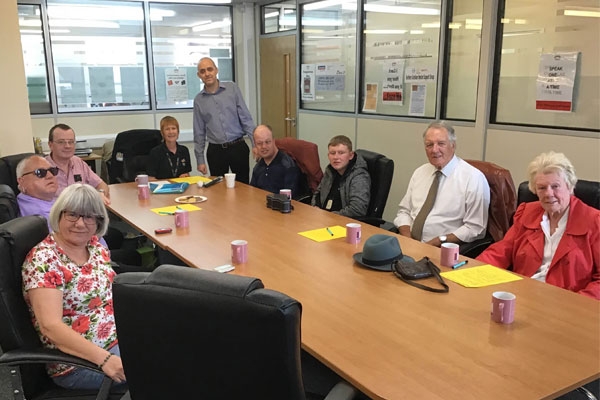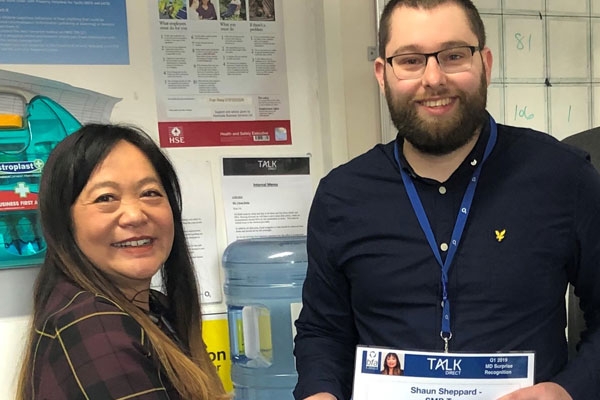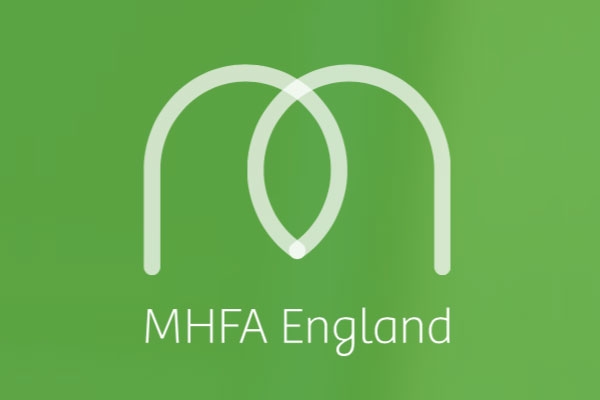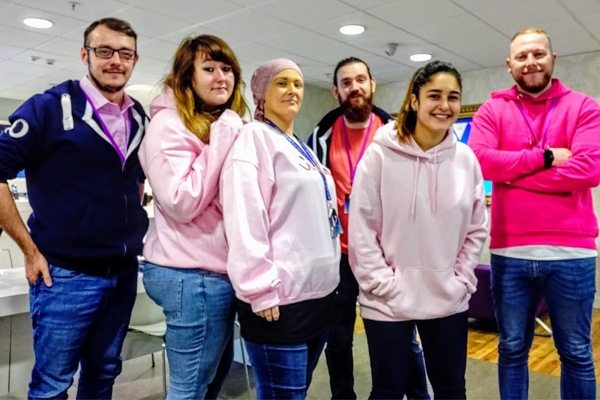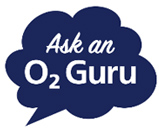iCare to enlighten blind people with technology
A project initiated by a local O2 store brightens the lives of blind people with a smart phone which could be found in anyone’s pocket.

“Essential” and “personalised” are new definitions of smart phones in this era and are applicable to every user irrespective to mobility and health of a person
Whenever we open the setting menu of a phone, we usually go to the Wifi section to search for accessible free wifi, but there is a section at the bottom of the menu which we often ignored.
Smart phones have accessibility functions to allow people with disability to use them but no one would care to know until a Sheffield man turning blind in his 30s.
Mark Skeleton, an assistant store leader of a O2 shop in Division street, was a normal hardworking man with his wife waiting him at home every night, wishing nothing but a stable life. His wish was blown away when he started to notice that his sight was blurred. Although he had not been seeing things well for a long time, this time he knew that something must have happened to him. His doctor told him that he had diabetic retinopathy, a name that he never heard of, but he knew his life had changed. His retina would deteriorate due to high blood sugar level, which meant that he would lose his sight in just a few months.
Being blind was not his main concern, but being dependent was. 2 out of 3 visually impaired would lose their jobs in this country and Mark knew he could be one of them. While he was looking at his wife who married to him 6 months ago and his home with 25 years of mortgage, he knew he could not lose his job.
He tried to hide it, but he could not hide it for long. In a week, his sight had fallen to a stage where he was not able to perform his duty. Bearing the fear of living on benefits, he turned himself in to his manger Linda Jones and boss Zak Patel. “I have something to tell you, but please don’t sack me,” he told them. It could be his luck or an appreciation of honesty from his bosses. Zak gave him an entire project which changed his life again.
iCare project aims to include blind people into the world of technology by providing one on one guru service.
Most visually impaired share the same thought as Mark had before, thinking blindness equals darkness, a world of boredom and dullness, and no one tell them smart phones can light up their world.
Mark is a fan of books, but with only 20% of sight in one eye and totally blind in another, he has to give up reading. However, using his knowledge of technology, he connected a earphone to his iPhone and he can now listen to 4 to 5 books a month with the built-in audiobooks app. Voice control, talk back, inverted colour and zooming are all built-in features which allow visually impaired people to operate a phone like a normal person. ” I have a customer who told me that he went to the Apple Store and asked if they can help him with his iPhone, but they knew nothing to help,” Linda Jones talked about one of his visually impaired customer. We often buy a phone for its photo taking power, its outlook, and its latest model, and it changes how the company selling their phones.
Phone shop staff might be no difference from a sales person you found in a random store who will tell you that you should get it because it is the latest and most advanced, and seldom talk about your needs. We can prove that by looking around what is in people’s hand and we know if we are not holding that, we are not in trend. Smart phones have been portrayed as a fashion piece. If a person wears the one with fancy features and shiny outlook, she can draw others attention to her. This mindset has deeply rooted into the general public, which pushes visually impaired further away from smart technology despite the fact that it could help them. “I had sold many iPhones on that day, the day of the first launch of iPhone 6, but only one sale that I remember,” Linda said.
A customer with most of his sight gone came to her and Mark and asked for a phone. She and Mark told him that he could use the iPhone with just a earphone to control Siri, a function which people usually make fun of. An iPhone 6, a name that he never heard of or was never interested to hear, let alone knowing what Siri is, is now an integral part of his life like others. He can now read with audiobooks, tweet, call and text with a click on his earphone.
Technology is there and it is the matter if we can make good use of them. From iPhones to the basic android phones, all are born with a built-in accessibility function. iCare project sees the needs of visually impaired people and the ignorance of technology. Someone should be here to teach them how to utilise a phone.
Mark who is now one of the project managers comes back to the store and shares his story how he falls in love with smart devices, inviting them to join the world of technology.
Planning to expand to more areas, iCare wishes people in needs are fulfilled. It nows draws attention from the national O2 companies and inspires other universities to add a little twist to technology to brighten visually impaired’s life, namely a Monopoly which can speak where you have landed your piece, a fridge who can tell you what is inside and a key hole to turn all the lights on. In this digital age, smart phones will the ones who read the paper to them and guide them back home. It might be the equality that the world should have. Using the same devices, tweeting their life moments and taking pictures wherever they go, blind people could enjoy their lives too.
